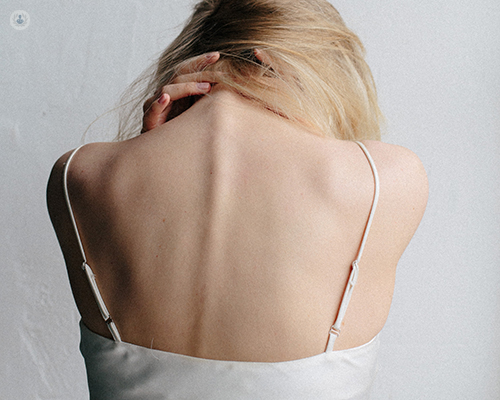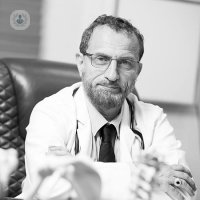Laser acupuncture: everything you need to know
Written in association with:Consultant rheumatologist Dr Dhiya Houssien talks us through laser acupuncture, explaining how it difffers from traditional acupuncture, its benefits and its level of effectiveness.
What is laser acupuncture and how is it different from traditional acupuncture?
Low-level laser therapy acupuncture is defined as the stimulation of traditional acupuncture points with low-intensity, laser irradiation instead of needles. The procedure is painless, safe and has no side effects. It is suitable for people who are sensitive to or have a fear of needles and the dosage is electronically adjustable.

Furthermore, it has a significantly shorter treatment time of 5 – 20 seconds per point, as opposed to 30 minutes if using a needle. Due to the fact that it is sequential rather than parallel, the patient may feel improvement after stimulating fewer acupuncture points and the whole range of points.
How does laser acupuncture stimulate the body's natural healing processes?
The acupuncture points are the areas of the body that stimulate nerves, muscles and connective tissues, increasing blood flow in the body and the release of endorphins, our natural painkillers.
In my clinic, I have developed my new method, which is based on research showing that a significant degree of pain reduction could be achieved for patients by using low-level laser acupuncture therapy (LLLAT). This method affects the function of connective tissue cells (fibroblasts), accelerating connective tissue repair and acting as an anti-inflammatory agent without causing any significant complications.
What are the potential benefits of laser acupuncture?
The majority of standard therapies for pain relief frequently pose adverse effects, particularly in older patients, further compromising quality of life. Non-steroidal anti-inflammatory drugs (NSAIDs) increase the risk of gastrointestinal bleeds and induced renal, cardiovascular and central nervous systems.
As a result, there is a need for non-drug and non-invasive therapies for chronic pain such as low-level laser acupuncture therapy (LLLT). Several studies worldwide found positive results linking anti-inflammatory effects with LLLT and NSAIDs such as indomethacin, meloxicam, celecoxib, and diclofenac, when administered at doses equivalent to those given in clinical practice.
Are there any risks or side effects associated with laser acupuncture?
Laser therapy is not recommended for pregnant, immunosuppressed, transplant patients or those taking anticoagulants.
What conditions or symptoms can be treated with laser acupuncture, and how effective is it?
The effectiveness of LLLT still remains debatable. That being said, use of LLLT has been linked to improvement in the treatment of painful neurological and musculoskeletal disorders such as carpal tunnel syndrome, shoulder, neck, and low back pain, as well as fibromyalgia, osteoarthritis, and rheumatoid arthritis.
How many sessions of laser acupuncture are needed, and how long do they last?
My technique is much more convenient than the standard form of LLLT. Usually, LLLT is given in up to 12 sessions, however, my low-level laser acupuncture therapy can be given in as little as one or two sessions.
The use of low-level laser acupuncture for pain relief is an integral part of the strategy in my clinic, I use a holistic approach in treating my patients by analysing the physical, nutritional, environmental, emotional, and social aspects of the patient's lifestyle rather than focusing on the physical illness or specific parts of the body.
You can read more about my holistic approach to patient treatment here.
If you are considering laser acupuncture, and would like to book a consultation with Dr Houssien, do not hesitate to do so by visiting his Top Doctors profile today.


